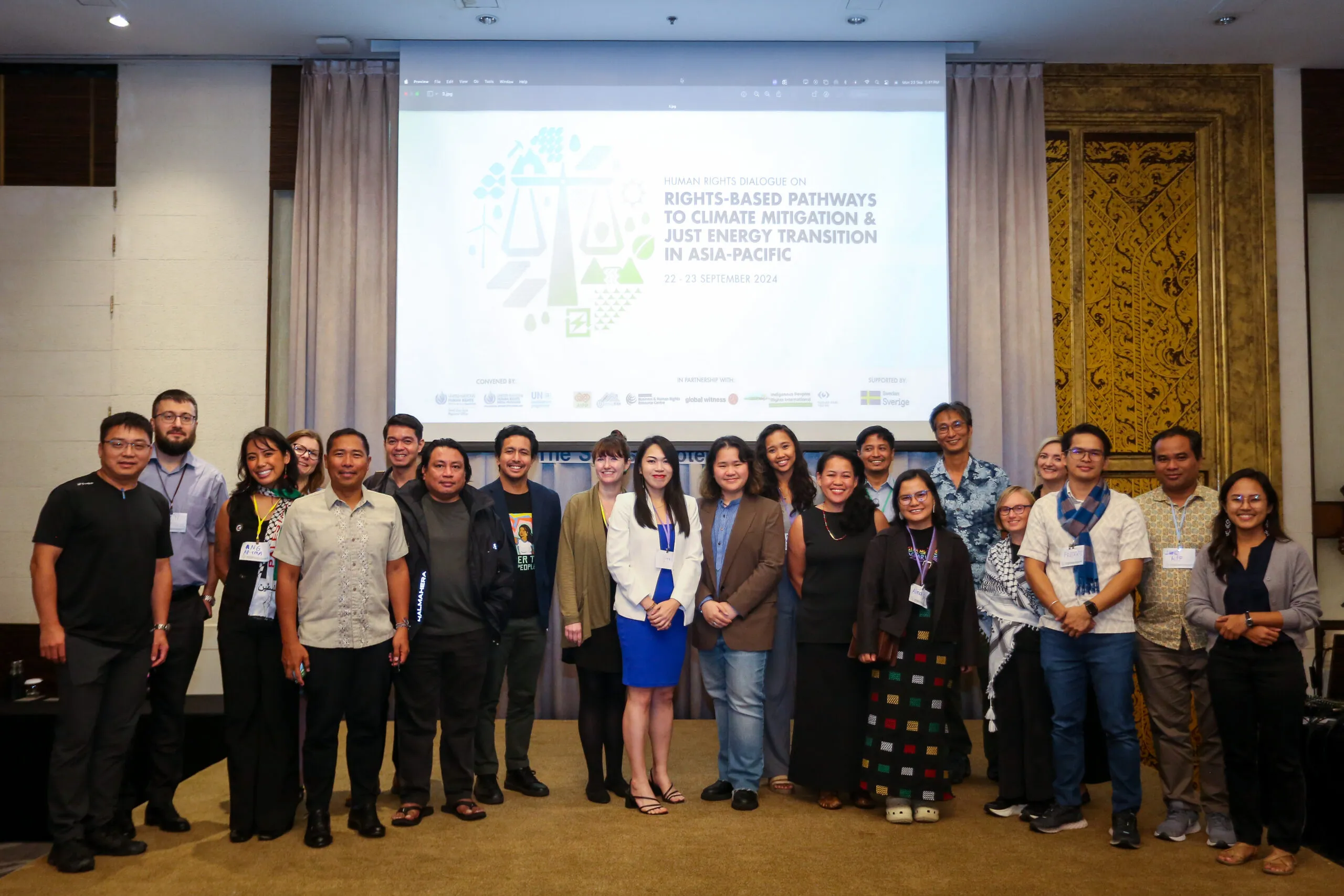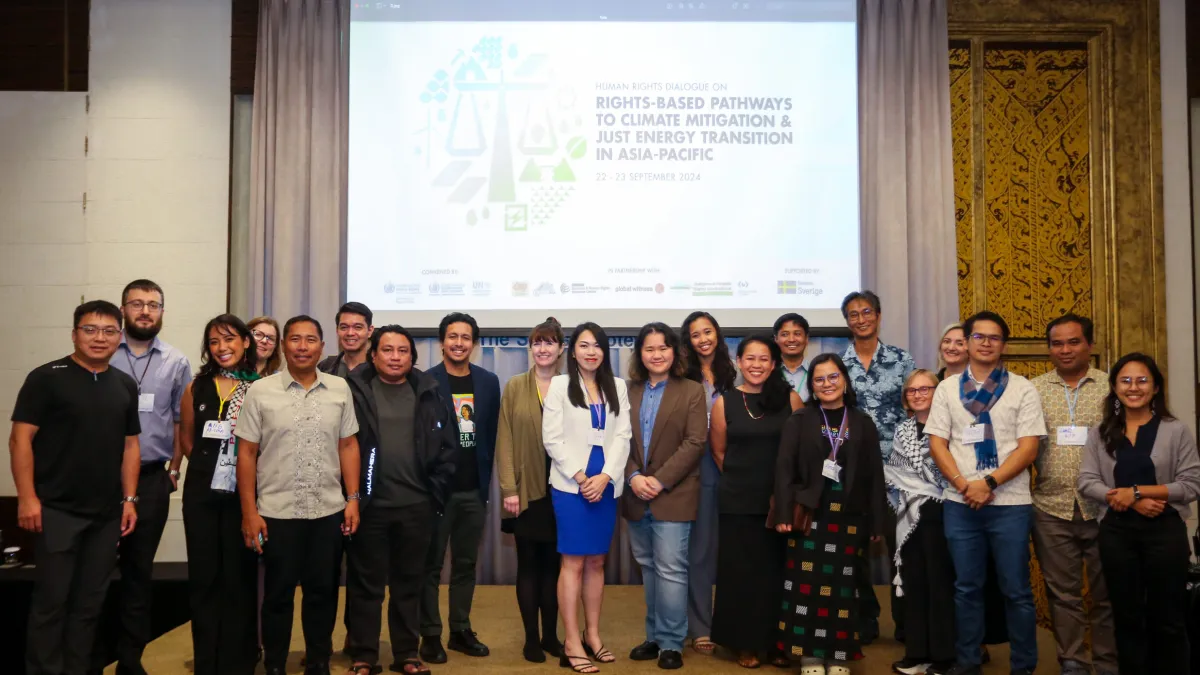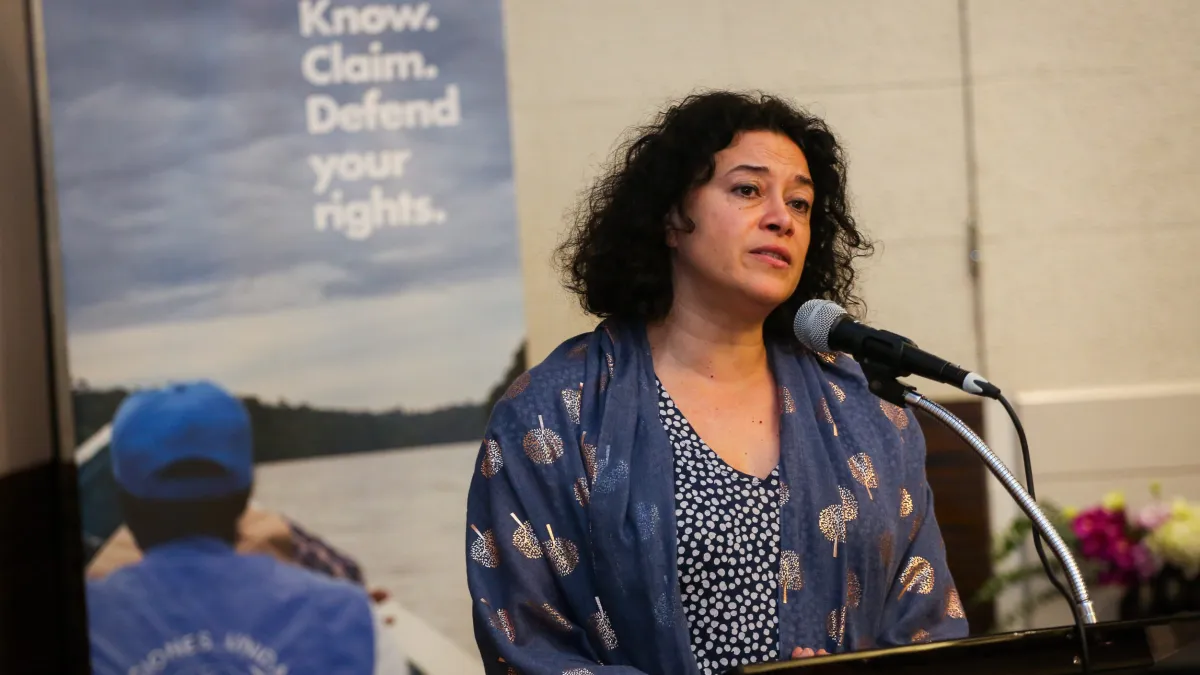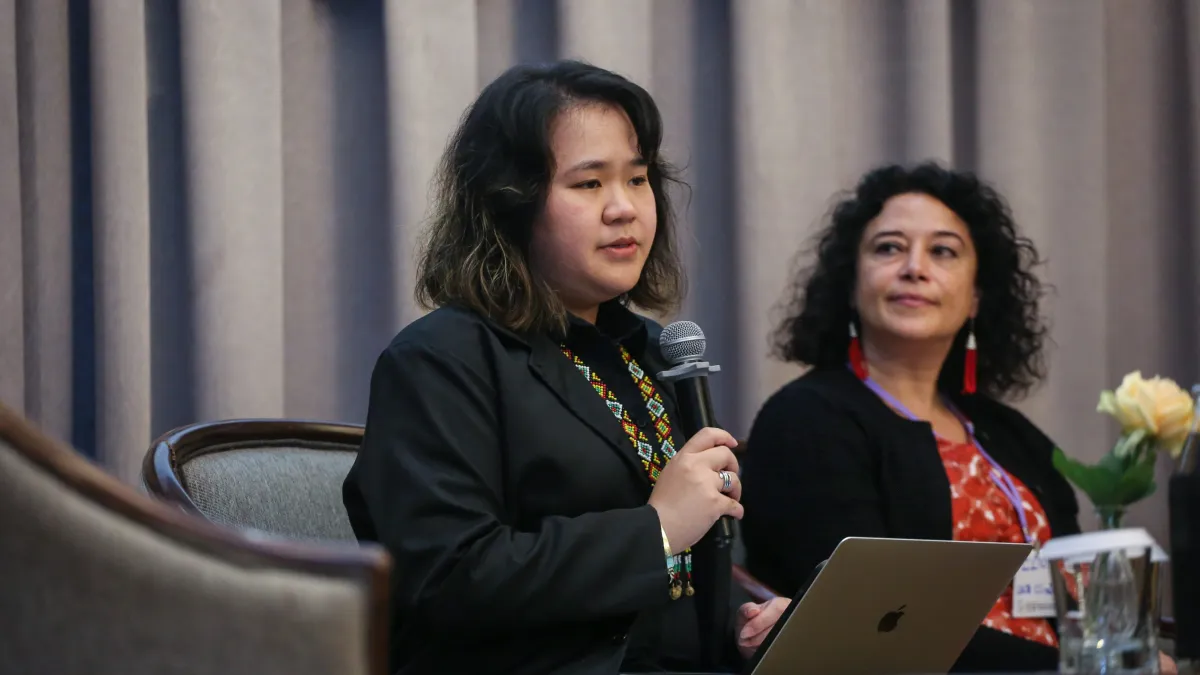Prior to the UNFCCC COP29 organized in Azerbaijan, more than 100 participants from civil society organizations and environmental human rights defender from a diverse background from across Asia-Pacific have gathered in Bangkok on 22-23 September to discuss the pressing issues of climate mitigation and just energy transition in Asia and the Pacific.
Co-organised by the UN Human Rights Office for South-East Asia, the UN Working Group on Business and Human Rights, and the UN Environment Programme, in partnership with Asia Indigenous Peoples Pact (AIPP), Business and Human Rights Resources Center, Global Witness, Indigenous Peoples Rights International (IPRI) and Publish What You Pay Asia-Pacific Transition Mineral Accountability (AP-TMA) Working Group, the two-day event aims to discuss the current human rights situation and challenges in the context of climate mitigation and energy transition, and identify possible solutions.
The human rights dialogue that UN Human Rights Office for South-East Asia took the lead in organizing was part of a five-year regional project that the Government of Sweden provides financial support from 2019-2024, in which climate change and the right to a healthy, clean and sustainable is one of the main areas of focus.
On the first day, the participants were engaged in panel discussions to dive deep their discussions before being divided into groups to address four critical issues including a) climate change mitigation technologies, mechanisms and carbon markets; b) extraction of critical energy transition minerals and metals, land rights, and ocean equity; c) safeguarding climate and environmental human rights defenders; and d) indigenous peoples, youth and gender perspective.
“The 2024 Human Rights Dialogue provided an incredibly insightful and timely space to learn from the lived experiences of communities and environmental human rights defenders whose human rights are negatively impacted by action on climate mitigation and just energy transition in Asia-Pacific,” said Elisa Morgera, the UN Special Rapporteur on climate change following her participation to the dialogue at which she has a chance to hear firsthand challenges facing environmental human rights defenders including Indigenous Peoples in Asia, and exchanged their visions for the way forward.
“We all need to listen to their proposals, so that decision-makers prevent any further human rights violations, and we find together more sustainable and equitable solutions to the climate crisis. More coordination across the UN System is also necessary to make this possible,” the UN expert said, sharing her takeaways from the event.
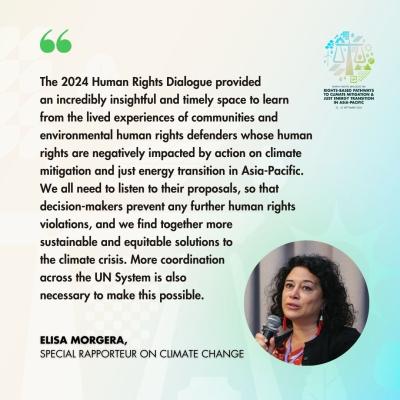
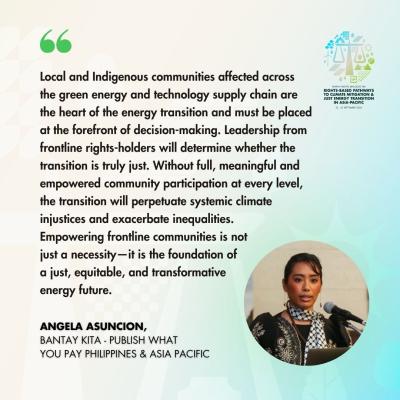
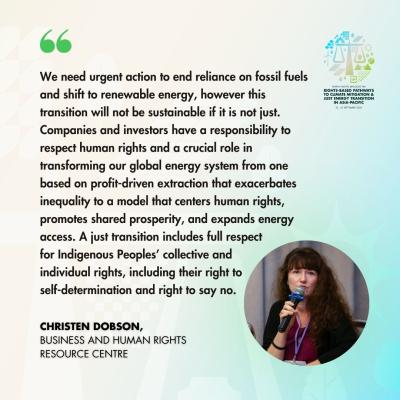
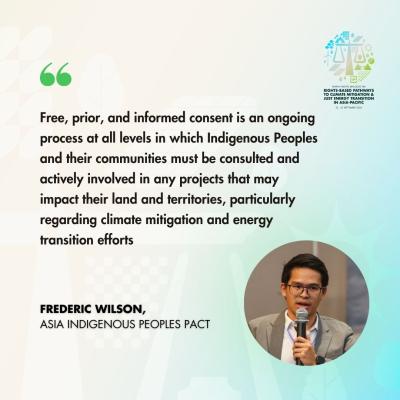
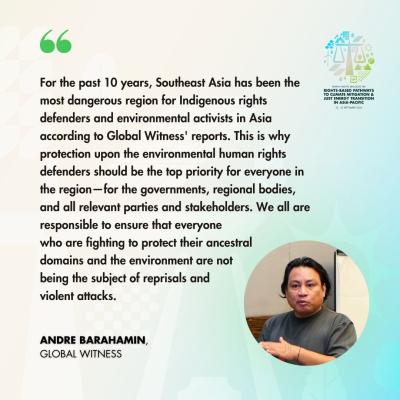
Johnson Jament, a participant of the Human Rights Dialogue and a recipient of the UN Voluntary Fund for Indigenous Peoples, said the dialogue provided him with a valuable chance to interact with UN Special Rapporteurs and various UN agencies including UN Human Rights and UN Environment Programme, and other activists in Asia and the Pacific region. “This synergizes our work in India and gives me more confidence to continue to work with sustainable connections and learnings gained from the dialogue,” he said.
During the latter part of the workshop, all participants spent time in groups, brainstorming together to draft a key message document – an output document of the dialogue. It is considered a truly collective action which brought everyone together to craft the vision of the world they want to see. The skeleton of key messages from the dialogues were first presented at the 2024 UN Responsible Business and Human Rights Forum, an annual regional forum on business and human rights in Asia, which was held back-to-back to the dialogue from 24-27 September 2024.
“The human rights dialogue was a good way to bring important issues to the fore,” said Ravi Rebbapragada, another participant. “I learned that the UN is serious about finding solutions to pertinent problems of the communities, especially of the Indigenous Peoples. It surely helps to spotlight the focus on these issues of human rights and business at international level.”
The need for deep, rapid and sustained reductions in greenhouse gas emissions is the main priority that all parties aim to achieve to curb the 1.5-degree Celsius global warming threshold to limit the deadly triple plenary crisis, greatly and substantially affecting a broad range of human rights.
States and companies are rallying to develop new technologies and innovations to reduce greenhouse gas emissions by deploying the wider use of available renewable energy technologies and Critical Energy Transition Minerals in energy and transport sectors. The move will lead to exacerbating environmental and social challenges, including impacts on livelihoods, the environment, health, human security, and human rights, and can undermine efforts towards the just energy transition.
The key messages drafted by all participants will be made available to the public ahead of the 2024 United Nations Climate Change Conference or Conference of the Parties of the UNFCCC, or widely known as COP29, the world’s largest climate summit which will be held in Baku, Azerbaijan from 11 to 22 November, and the 2024 UN Forum on Business and Human Rights, the largest UN forum on business and human rights, which is held in Geneva, Switzerland on 25-27 November.
For more information about the event, please contact Romchat Wachirarattanakornkul at @email

